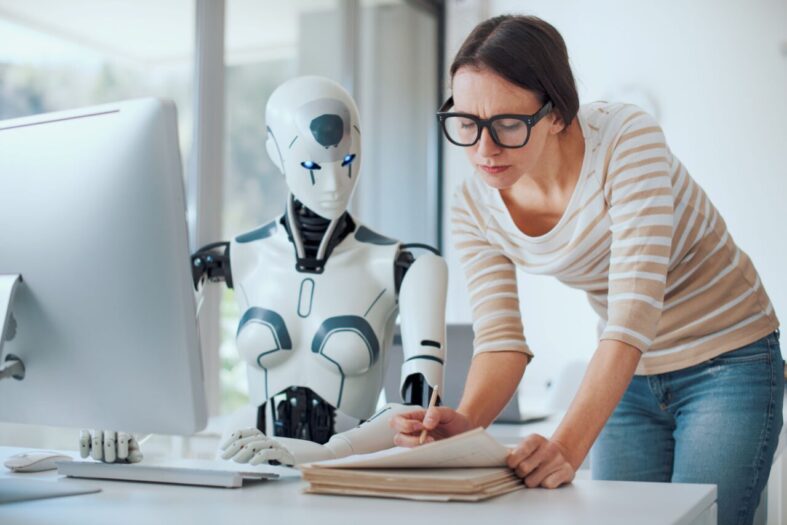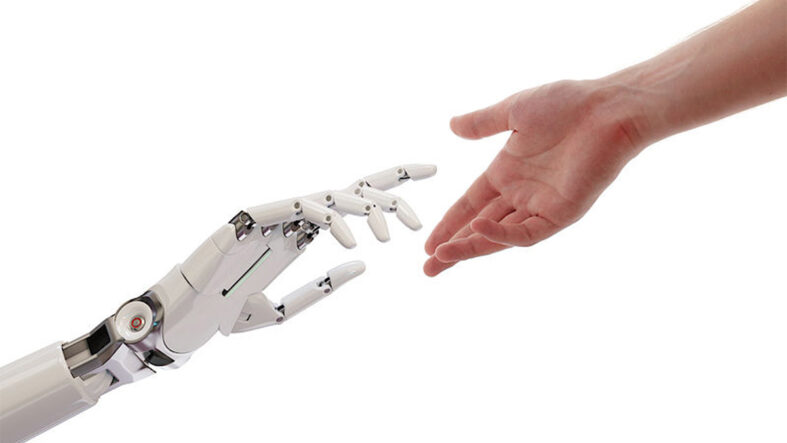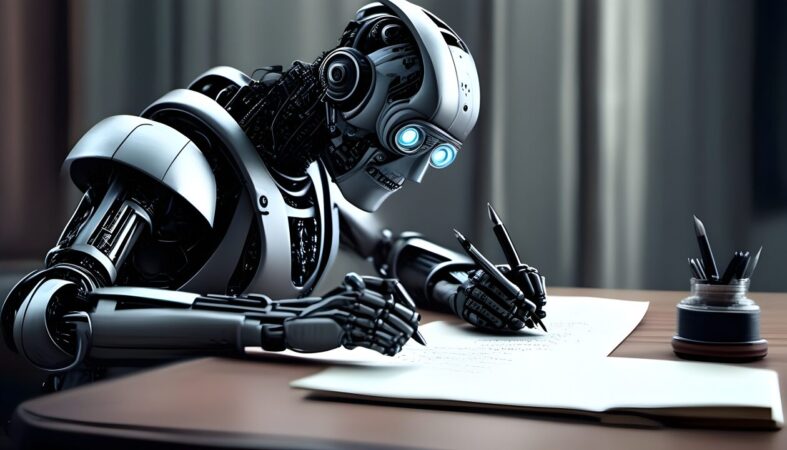Will artificial intelligence take over writing? That’s the million-dollar question these days. Whether you’re a freelancer hammering out blog posts at 2 a.m. or a corporate marketing guru cranking out campaigns, you’ve probably wondered if machines will render human creativity obsolete. Let’s get real about what the future might hold.
Key points
- Artificial intelligence is advancing but won’t completely replace human writers soon.
- Machines excel at efficiency, but humans bring emotion, humor, and subtlety.
- Tools like paraphrasing platforms can complement rather than replace humans.
- Authenticity remains critical in writing, especially for meaningful storytelling.
- ChatGPT detectors are becoming popular to distinguish machine-generated work from human efforts.
Can Machines Match Human Creativity?

Artificial intelligence has its strengths. It’s fast, efficient, and never takes coffee breaks. But when it comes to crafting nuanced stories or making readers laugh, machines often fall short. You can’t teach a bot to crack a dad joke that lands perfectly—or to pick up on cultural cues that evolve faster than TikTok trends.
Studies like one published by Harvard Business Review confirm that artificial intelligence thrives on repetitive, data-heavy tasks but struggles with complex emotional intelligence. Think about writing heartfelt wedding vows. Would you trust a machine for that? Probably not. Humans infuse content with relatability and emotion, and no algorithm can mimic a life full of bad dates and awkward experiences.
How Tools Like a Paraphrasing Platform Can Help
Let’s say you’ve got writer’s block or need to rework a clunky sentence. That’s where tools come in handy. A good paraphrasing tool—like ZeroGPT’s paraphraser—lets you rephrase text in seconds without losing the essence of what you’re trying to say. It’s like having a personal editor who doesn’t nag you about deadlines.
Here’s why it’s useful:
- It saves time when you’re juggling multiple tasks.
- It ensures clarity and consistency in your writing.
- It’s free, easy to use, and doesn’t bombard you with ads.
You don’t need a Ph.D. to navigate it—just paste your text and click. Grandma could figure it out.
Authenticity in Writing

Readers can sniff out inauthenticity like sharks smell blood. Whether it’s a heartfelt blog or a product review, they know when something feels off. Artificial intelligence-generated text often lacks that human touch and tools AI detectors are catching up to spot machine-made content.
Why does authenticity matter? It builds trust. Brands that rely too much on artificial intelligence risk alienating their audience. People want to hear from people, not bots. A clever metaphor or a heartfelt story resonates far more than a string of keywords strung together by a machine.
Where Machines Excel
Let’s not throw shade at artificial intelligence entirely. It’s great for:
- Crunching data quickly.
- Generating straightforward copy for SEO purposes.
- Automating mundane writing tasks.
- Assisting with grammar and spelling checks.
According to MIT Technology Review, artificial intelligence can reduce costs and improve efficiency in industries reliant on repetitive tasks. But relying solely on machines risks creating work that feels sterile and lifeless.
The Rise of ChatGPT Detectors
As artificial intelligence becomes more sophisticated, tools for spotting machine-generated text have also evolved. ChatGPT detectors help maintain quality and originality by identifying where bots might’ve done the heavy lifting.
This is important for industries where credibility matters, like education and journalism. Schools are already using tools like ChatGPT detectors to check if students are submitting essays written by artificial intelligence. And guess what? Readers are starting to expect that level of scrutiny from brands too.
Why Human Writers Will Always Have a Place

Artificial intelligence may evolve, but it will never experience a breakup, laugh at a meme, or enjoy the smell of coffee on a rainy day. Writing isn’t just about stringing words together—it’s about capturing moments, emotions, and quirks that resonate with readers.
Take storytelling. Machines can generate plots, but they don’t understand what makes a story unforgettable. Humans add those tiny details that make readers nod in recognition or laugh out loud.
Bullet Points ─ The Core Takeaways
- Machines are great at repetitive tasks, not complex storytelling.
- Tools like paraphrasers assist, but they don’t replace the human element.
- Authentic writing builds trust and connection with audiences.
- ChatGPT detectors are leveling the playing field for originality.
- Creativity is rooted in human experience, which machines lack.
FAQs
- Can artificial intelligence write better than humans?
Artificial intelligence is efficient for technical and data-heavy tasks but struggles with emotion and nuance. - Are tools like paraphrasing platforms useful for professionals?
Yes, they save time and improve clarity without replacing your voice. - What are ChatGPT detectors, and why do they matter?
They identify machine-generated content, ensuring originality and quality. - Will artificial intelligence take over all writing jobs?
Unlikely. Human creativity and emotional depth can’t be replicated. - How can writers stay relevant in an age of artificial intelligence?
Focus on originality, storytelling, and emotional connection with readers.
Human and Machine Collaboration ─ A Balanced Future

Instead of fearing that machines will replace writers, it’s smarter to think of how both can work together. Artificial intelligence isn’t here to steal jobs—it’s here to make some parts of the process easier. Imagine artificial intelligence as the assistant who organizes your desk while you focus on brainstorming ideas.
For example, artificial intelligence can handle repetitive tasks like SEO optimization or creating data-heavy reports. Writers can focus on the fun part—creating stories, connecting with readers, and building unique voices. Collaboration can lead to a balanced workflow where efficiency meets creativity.
According to a study by McKinsey & Company, industries that combine human creativity with artificial intelligence efficiency see better outcomes. It’s not about one replacing the other; it’s about finding where each excels.
The Bottom Line
Artificial intelligence is impressive, but it can’t replace the depth, creativity, and authenticity that human writers bring to the table. Sure, it can churn out a product description or help fine-tune grammar, but it lacks the soul that makes great writing memorable. Humans bring emotion, humor, and life experience to writing—qualities that can’t be coded into a machine.
Writers don’t need to worry about extinction. Instead, they should embrace tools that make their work easier. Paraphrasing tools can speed up tedious tasks, detectors ensure that originality stays intact. By focusing on what humans do best—connecting with audiences and crafting authentic stories—writers can remain irreplaceable in the ever-evolving landscape of content creation.
The future isn’t about AI taking over but about how humans and machines can complement each other. When used wisely, artificial intelligence can become the ultimate assistant, but the driver’s seat will always belong to us.

